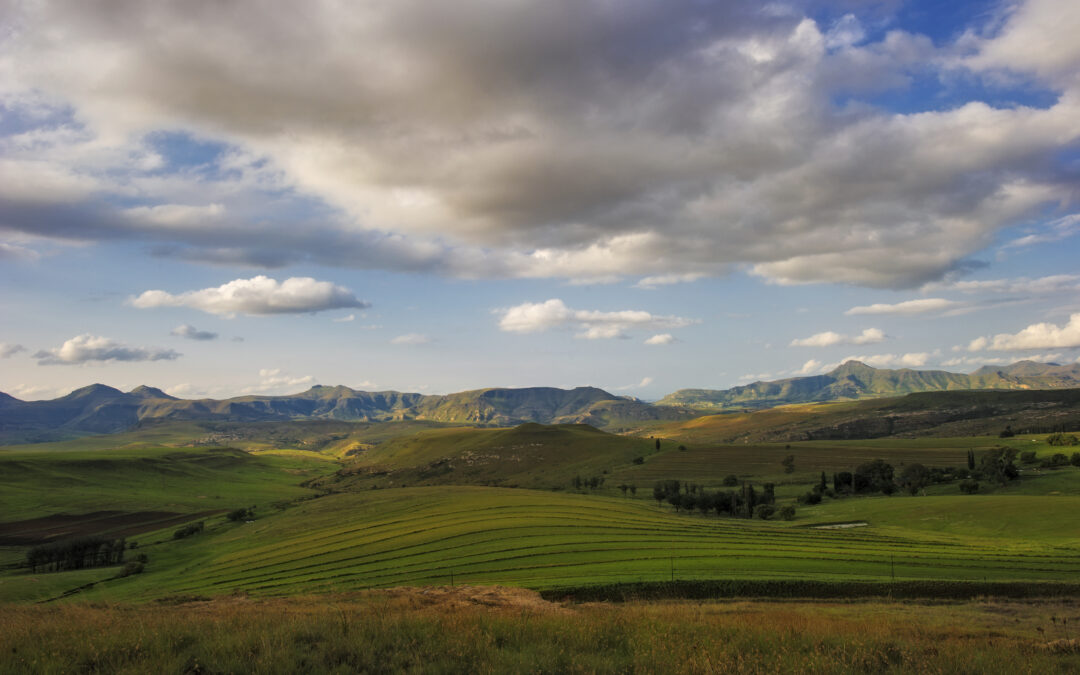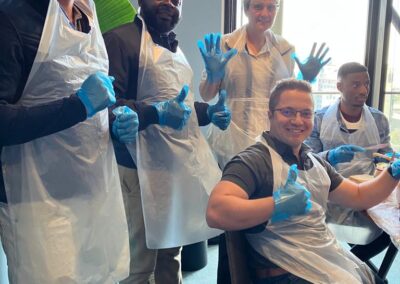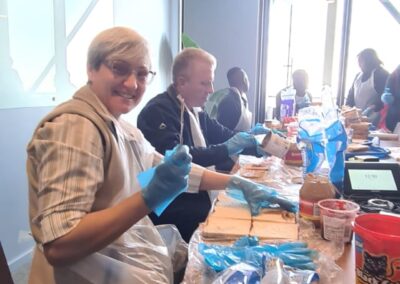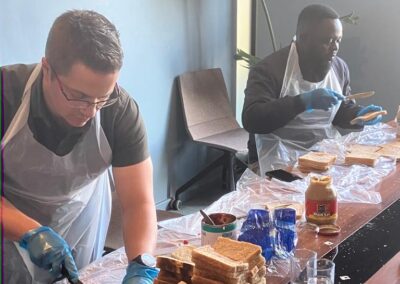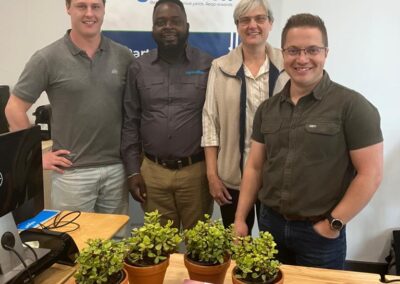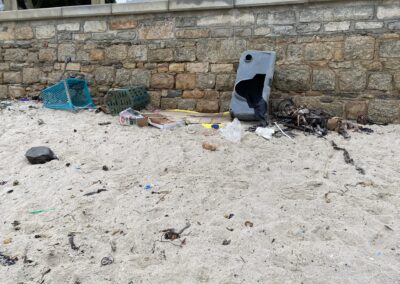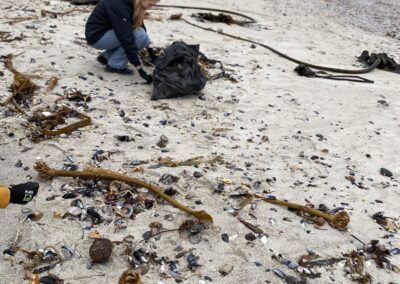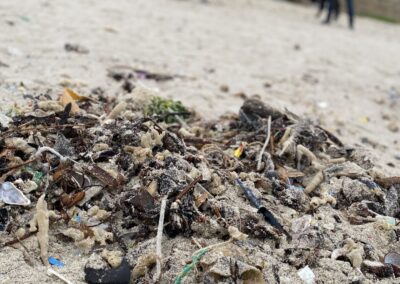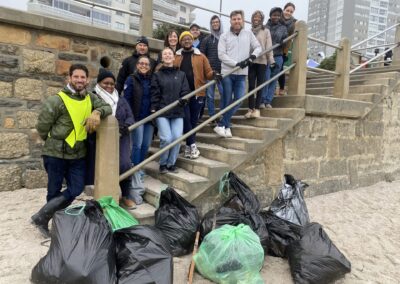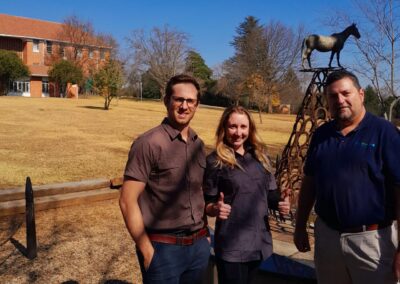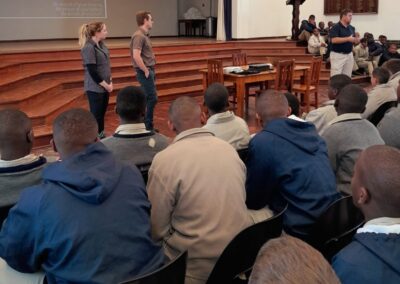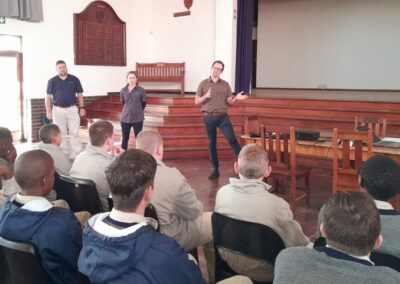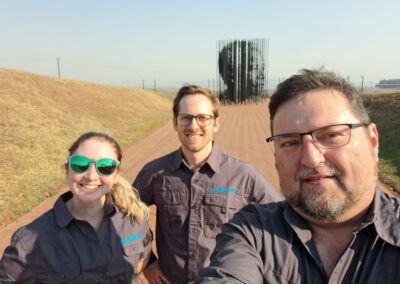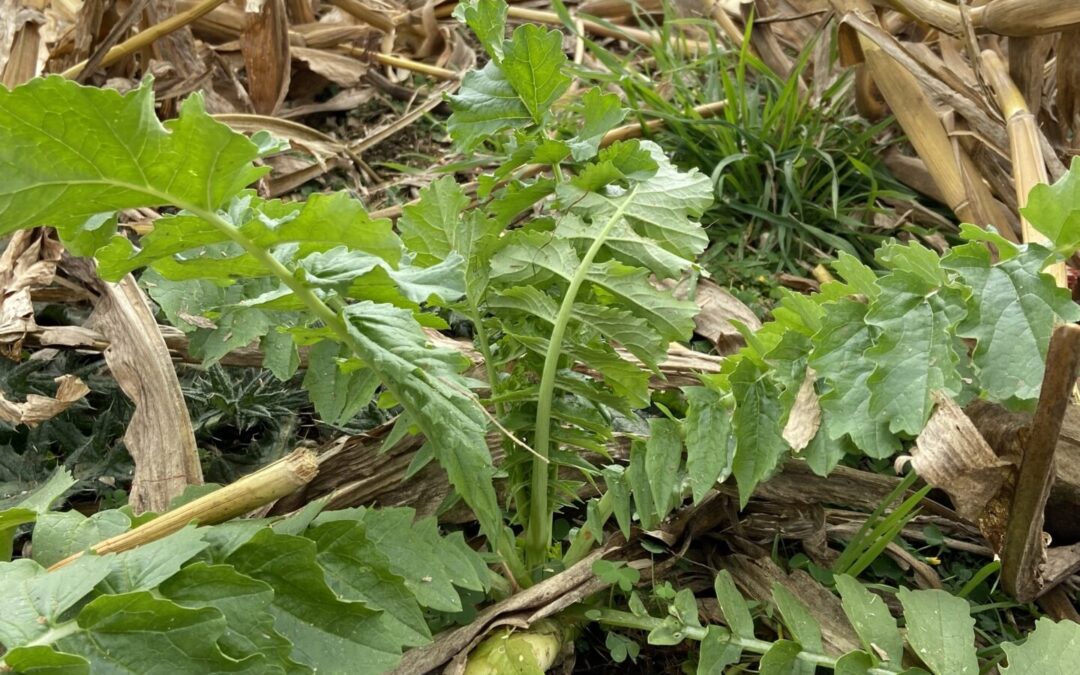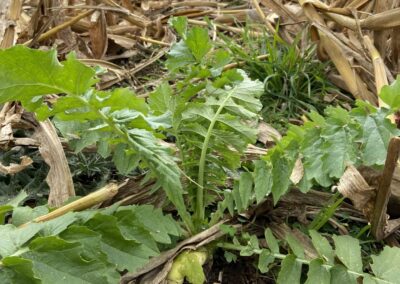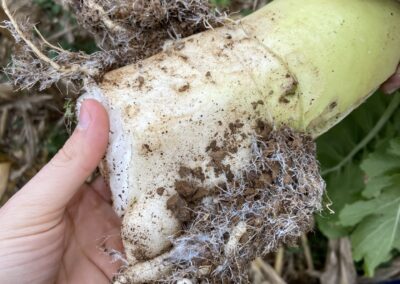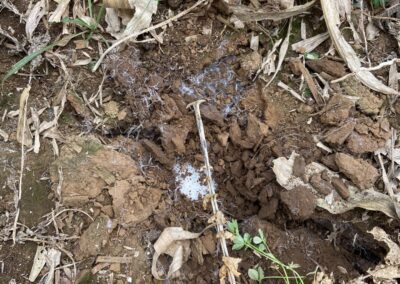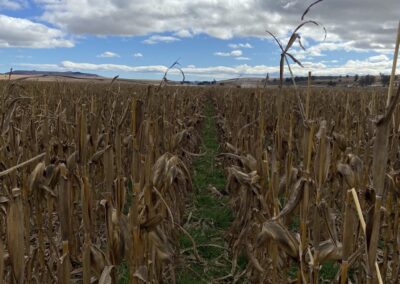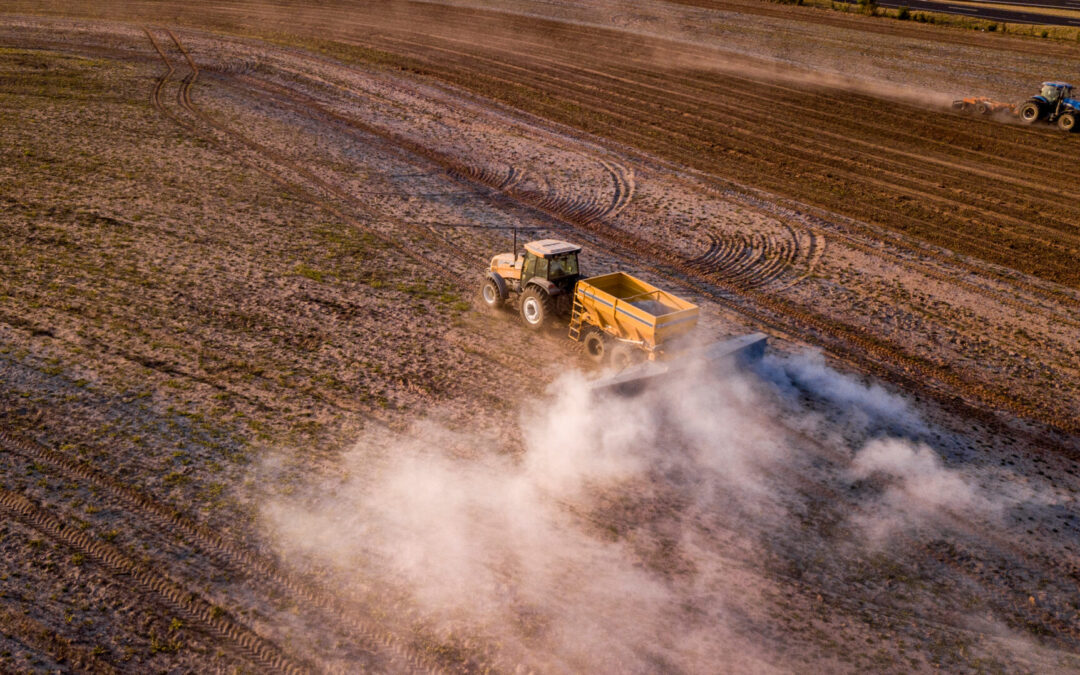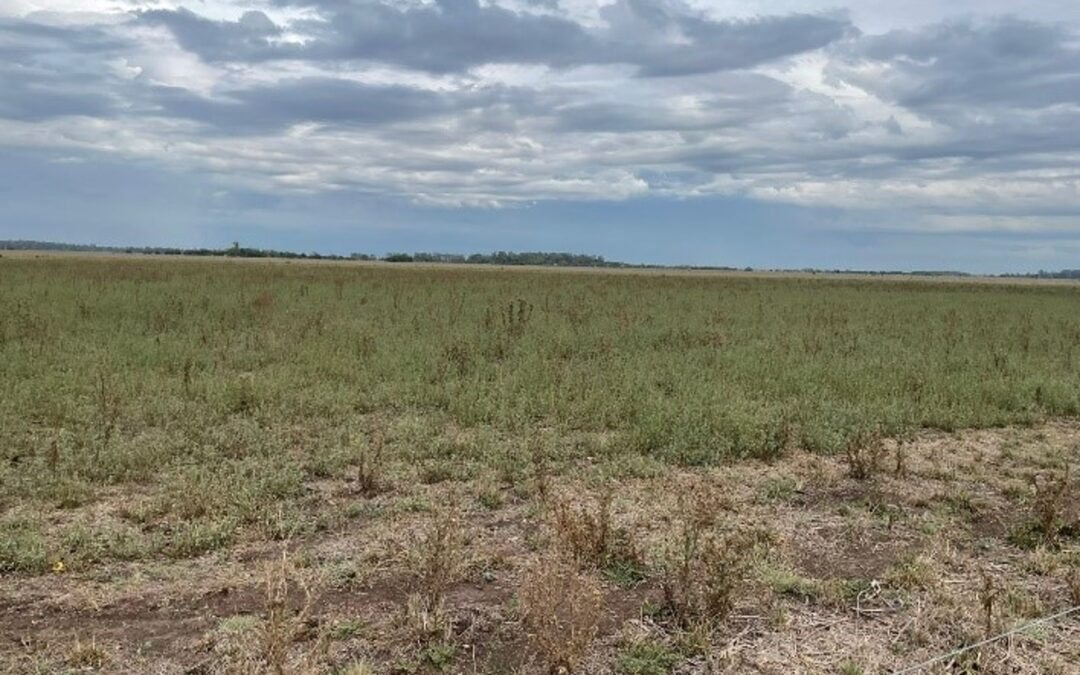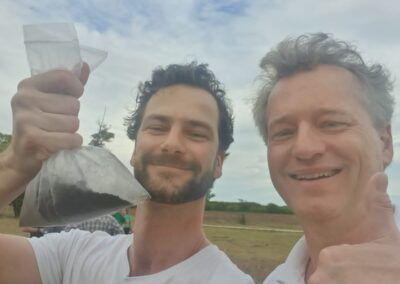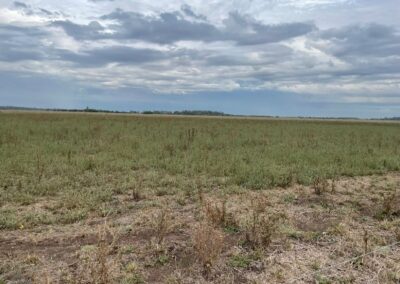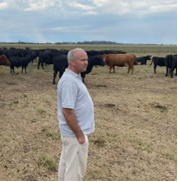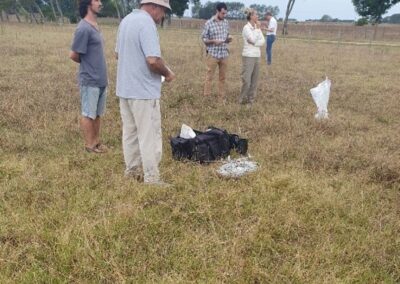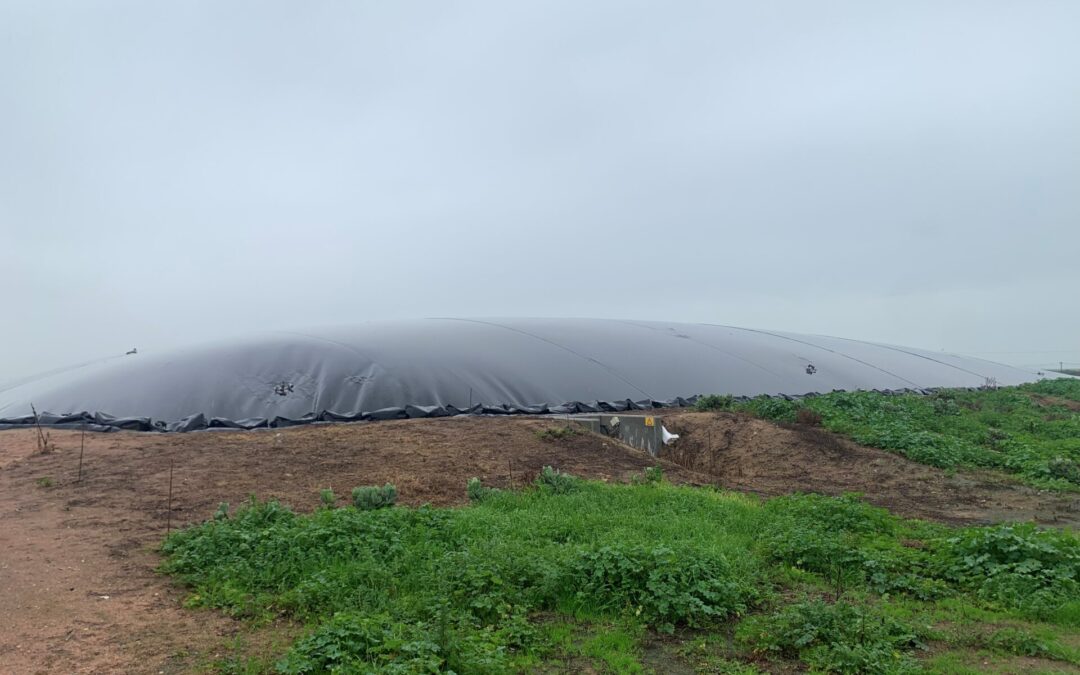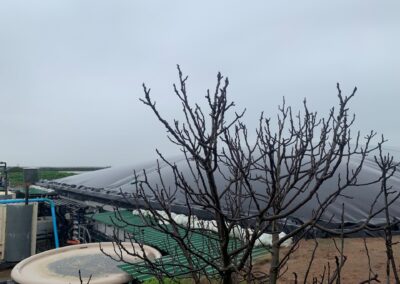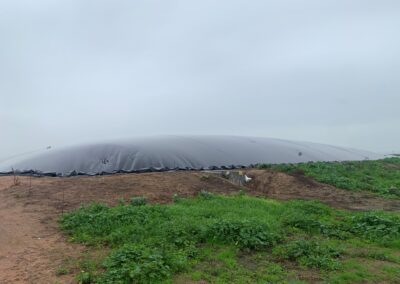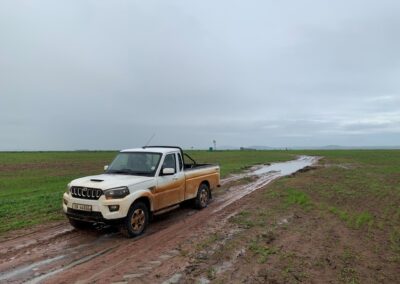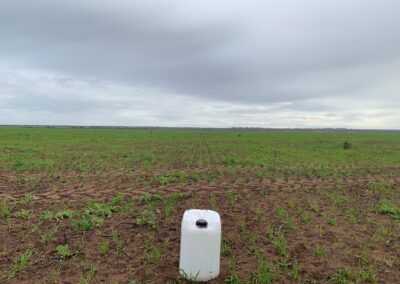4 July 2023
by Siviwe Malongweni, Research Coordinator: Agriculture & Soil Carbon
Soil pH helps to determine the kinds of chemical reactions that are taking place in the soil. It affects nutrient availability and toxicity, microbial activity, and plant growth. Most plants grow well at a pH range of 5.5 to 6.5. When soil pH is below this range, the soil is said to be acidic. Soil acidity is a major problem for many farmers worldwide because it can lead to decline or complete failure of crop production. For example, if soil pH is not within the optimum range it can lead to other nutrients, such as phosphorous (P) and potassium (K) being fixed and unavailable for crops. Research has shown that up to 52% of soil P is lost if the pH is below 6. To counteract this, farmers often apply lime. Lime is a soil conditioner applied to acidic soils to raise alkalinity and neutralize toxic elements in the soil. Application of lime enhances the chemical properties of soil by reducing soil acidity and through its indirect effects on the immobilization of toxic heavy metals, mobilization of plant nutrients, development of soil structure, and improvement of hydraulic properties. As a result, liming of acidic soils helps to produce more biomass, and can result in increased carbon sequestration. Addition of plant residues in soil can also have a liming effect, depending on the chemistry of the plant residue and how it interacts with the soil environment.
A field experiment conducted by Desalegn et al. in 2017 revealed that 4 years of liming at rates ranging between 0,5 and 2 tons per hectare significantly boosted the availability of plant nutrients, plant growth and most importantly, final crop yields. This reflects improved biomass production which in turn delivers increased carbon levels in the soil when biomass residues are left in field. Not all researchers agree with these outcomes as a general rule however, as some argue that liming accelerates soil biological activity, which favours the mineralization of organic matter and causes significant CO2 losses and decreased soil organic carbon (SOC) stocks. Certainly, when lime is incorporated into the soil through methods like mouldboard ploughing or rotary spading, it can disrupt soil structure and cause biological disturbance, resulting in an elevated rate of CO2 emissions released from the soil into the atmosphere. It can also reduce the protection of organic matter, making it more susceptible to decomposition with reduced SOC levels. Lastly, when lime is applied on acidic soils it undergoes a chemical reaction with soil acidity, leading to the formation and atmospheric release of CO2 gas (Figure 2). Through the data provided by farmers into the AgriCarbon programme, Climate Neutral Group will be testing the claims of both sides in this debate. This is especially important in the South African agricultural environment as the industry is highly subject to extreme and prolonged droughts. Through research conducted by our partners at Trace & Save, CNG can report that soils with SOC levels of 2,3% and above are on average 20% more efficient with respect to irrigation than soils with SOC levels of 1,7% and below.
Our initial findings are that while liming improves soil structure by acting as a cementing agent that tightly binds clay particles into stable aggregates through the process of flocculation, bringing an increase in SOC physico-chemical protection, the effect of soil liming on soil carbon in agricultural soils is complex and depends on various interacting factors. The impact of soil liming on soil carbon levels in agricultural soils can vary depending on various factors, including the initial soil pH, lime application rate, and the specific management practices employed. CNG recognises that lime application must be evaluated on a case-by-case basis, but our findings show that limiting soil disturbance during lime application results in the least risk of SOC losses.
Since evidence exists on both sides of the debate on the effects of liming on SOC, Climate Neutral Group is encouraging VERRA, as the end issuer of the carbon credits from the AgriCarbon programme to employ a comprehensive monitoring and accounting framework that captures the impacts of lime on SOC stocks. This could be achieved by including liming as part of the eligible project activities alongside: changing/expanding crop rotations and crop intensity, introducing cover crops, shifting from annual to perennials, reducing tillage intensity, adopting new residue management and irrigation techniques, substituting synthetic fertilizers with organic matter additions.
A.

B.

Figure 1: (A) Aboveground biomass production in a maize field applied with (200-400 kg/ha) and without lime.
Figure 1: (B) effect of liming on soil organic carbon (SOC).
Source A: https://www.researchgate.net/publication/311509576_Soil_Acidity_and_Management_Options
Source B: https://www.sciencedirect.com/science/article/pii/S0167880915000067
Figure 2: Chemical reaction between lime and soil acidity – the reaction continues until all the lime has fully reacted with the soil acidity (Anderson et al. 2013)

References:
Anderson N.P., Hart J.M., Sullivan D.M., Christensen N.W., Horneck D.A., Pirelli G.J. (2013) Applying Lime to Raise Soil pH for Crop Production (Western Oregon), 1-21.
[Link: https://ir.library.oregonstate.edu/downloads/m613mx90d#:~:text=If%20you%20plan%20shallow%20or,recommended%20pH%20for%20the%20crop]
Desalegn T., Alemu G., Adella A., Debele T., Gonzalo J., J. (2017). Effect of lime and phosphorus fertilizer on acid soils and barley (Hordeum vulgare L.) performance in the central highlands of Ethiopia. Experimental Agriculture, 53(3), 432-444. https://doi.org/10.1017/S0014479716000491
[Link: https://www.cambridge.org/core/journals/experimental-agriculture/article/abs/effect-of-lime-and-phosphorus-fertilizer-on-acid-soils-and-barley-hordeum-vulgare-l-performance-in-the-central-highlands-of-ethiopia/122E78F05FA3F20C5135919E603EE30A
Paradelo R., Virto I., Chenu C. (2015). Net effect of liming on soil organic carbon stocks: A review. Agriculture, Ecosystems and Environment, 202: 98-107. https://doi.org/10.1016/j.agee.2015.01.005]
[Link: https://www.sciencedirect.com/science/article/abs/pii/S0167880915000067]
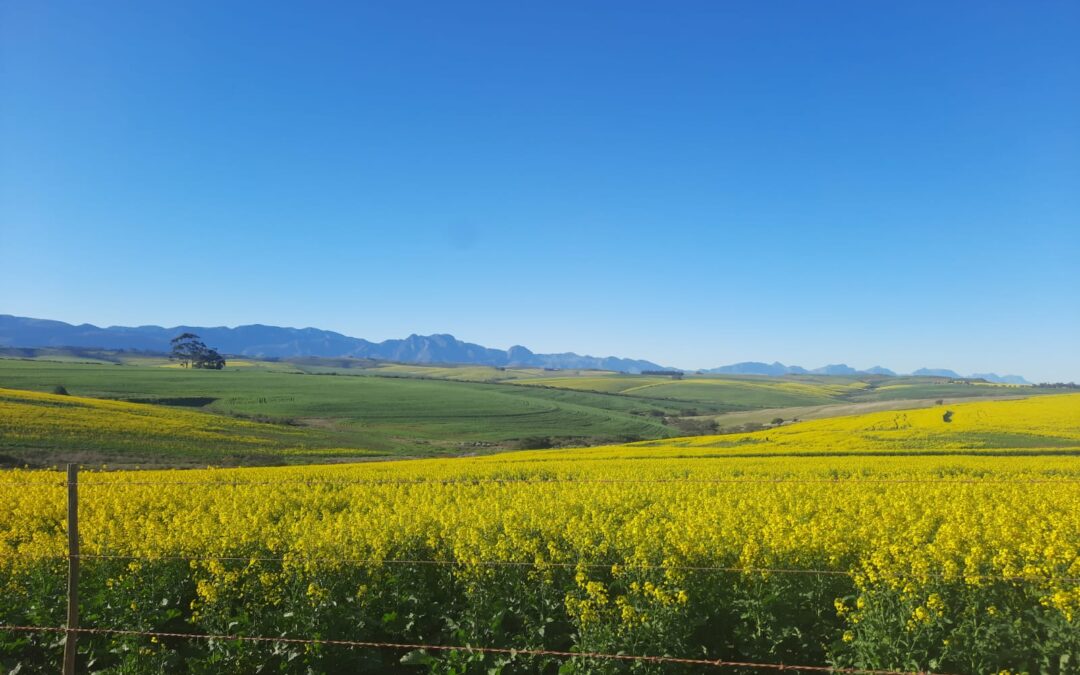
 In this newly created role, Pieter is responsible for the development and implementation of the go-to-market strategy to sign-up new farmers and partner organisations into the AgriCarbon programme. Pieter will focus on our farmer clients – current and future – to understand their needs and build our business to meet those needs. He will collaborate closely with the Carbon, Research, Agronomy and Data teams to drive operational efficiency and data-driven decision-making through AgriCarbon’s Digital Data Collection Platform.
In this newly created role, Pieter is responsible for the development and implementation of the go-to-market strategy to sign-up new farmers and partner organisations into the AgriCarbon programme. Pieter will focus on our farmer clients – current and future – to understand their needs and build our business to meet those needs. He will collaborate closely with the Carbon, Research, Agronomy and Data teams to drive operational efficiency and data-driven decision-making through AgriCarbon’s Digital Data Collection Platform.
